Counting the Omer and Exploring the Tree of Life
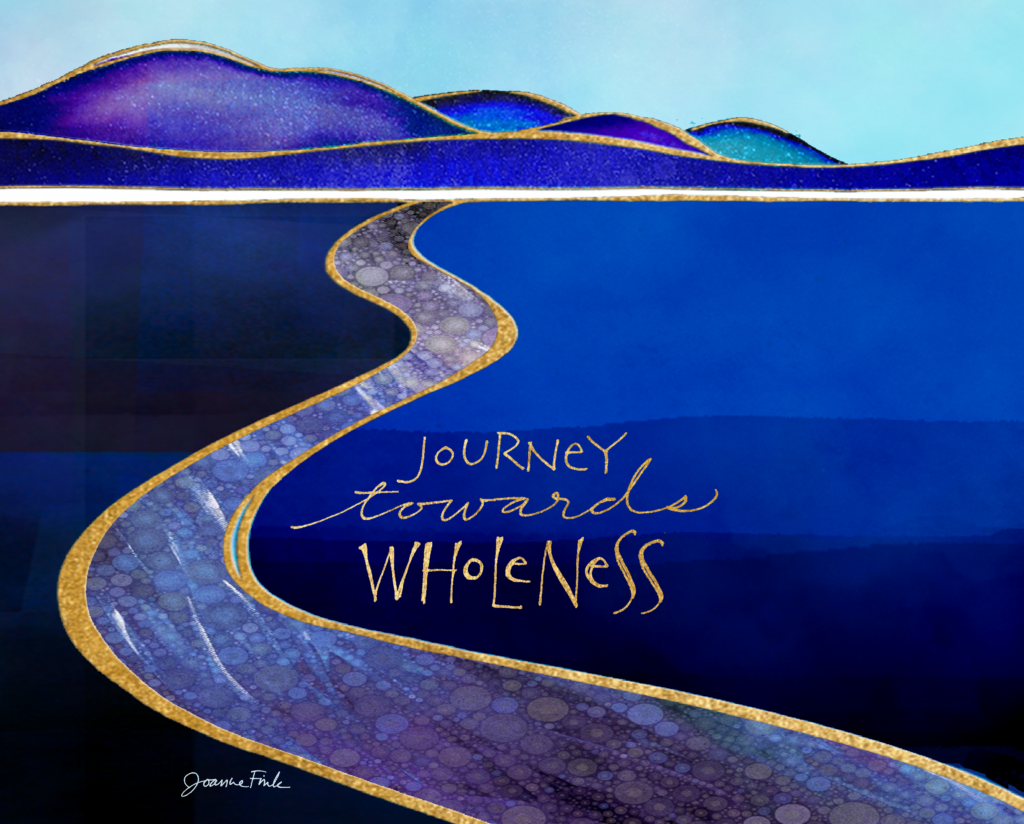
This week we read the double portion Tazria–Metzora, a challenging and often misunderstood section of the Torah that speaks of skin afflictions, isolation, and ritual purification. While the ancient context may seem distant, the core themes—of transformation, spiritual exile, healing, and return—speak powerfully to the journey of the soul.
In the midst of Counting the Omer, when we are intentionally reflecting on our inner landscape through the lens of the seven lower Sefirot, the connection becomes clear: like the person afflicted with tzara’at, we are invited to examine what is out of alignment within ourselves and take the necessary steps to return to spiritual wholeness.
The Kabbalistic Tree of Life
The Kabbalistic Tree of Life can serve as a sacred mirror, helping us see the spiritual terrain we are walking during this season of growth. One of my most cherished spiritual practices is counting the Omer in community. A group of friends and I meet on Zoom every night at 10 ET to count, study the Sefirot, and do some guided journaling. Here are the prompts I offered for Hod shebe Tiferet.
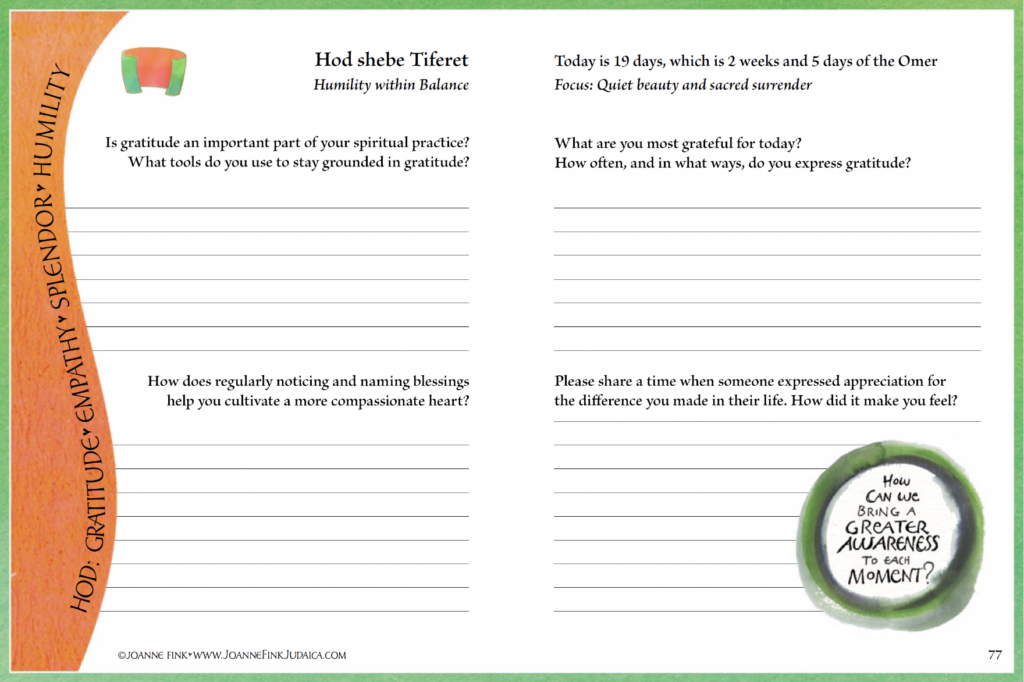
Counting the Omer as a spiritual practice is growing in popularity! I will be one of several artists participating in Aleph’s panel discussion about Creative Omer Practices on Wednesday, May 14th at 6 pm ET. Everyone is welcome; I hope you can join us.
Part of my Omer exploration this year is creating visual interpretations of the ten Sefirot superimposed over the branches and roots of a tree. Here are a few examples.
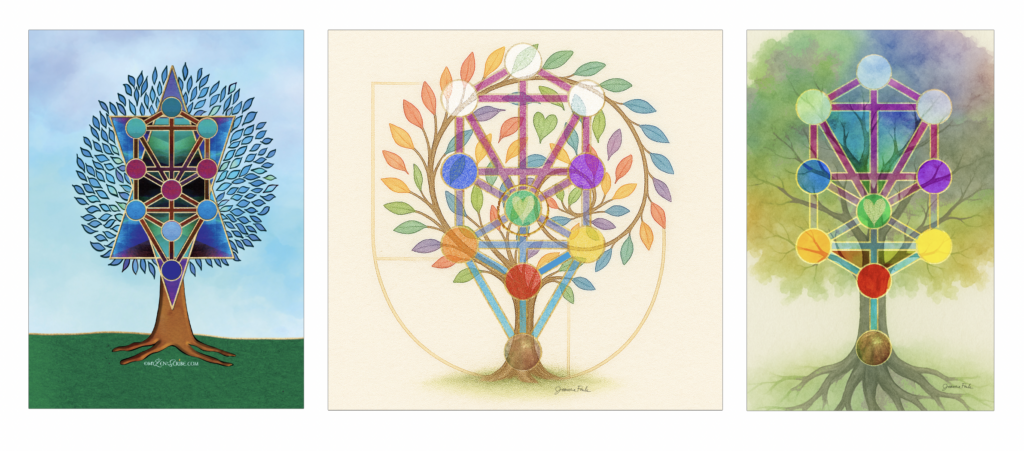
Illustrating this week’s Parashiyot
The Torah portions of Tazria and Metzora explore what happens when imbalance surfaces—whether through illness, disconnection, or spiritual impurity. The afflicted individual is separated from the community, not as punishment, but as an opportunity for introspection and restoration. Just as the priest examines the afflicted person and guides their path to reintegration, contemporary Omer practice invites us to act as our own spiritual guides, examining where we are wounded, and discerning which qualities—Chesed, Gevurah, Tiferet, and beyond—are needed to restore balance and wholeness.
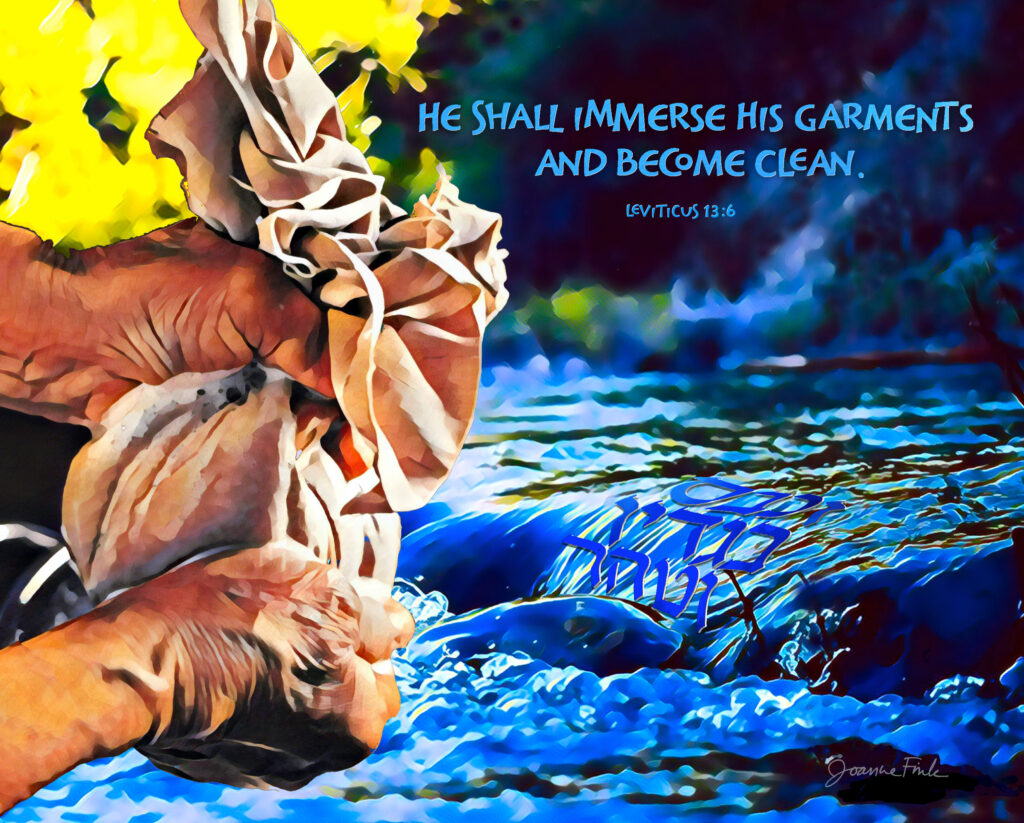
Immerse Me in Your Light
A Prayer for Parasha 27, Tazria
Source of Renewal,
Immerse me in Your light.
Strip me of all that prevents me
from becoming my best self.
Ground me in gratitude.
Guide me on the path of growth.
Let sacred reflection lead me
into deeper connection.
Inspire me to focus
on what really matters.
Help me Be Still
long enough to recognize that
my insatiable need for busyness
distracts me from a life
of meaning and purpose.
Immerse me in Your light.
Wash the weight of worry
from my weary soul.
Sanctify my sacrifice.
Help me feel whole.
Immerse me in Your Light.
Guide me with Your Truth.
Bless me with Your Love.
Immerse me in Your Light.
Sacred Surrender
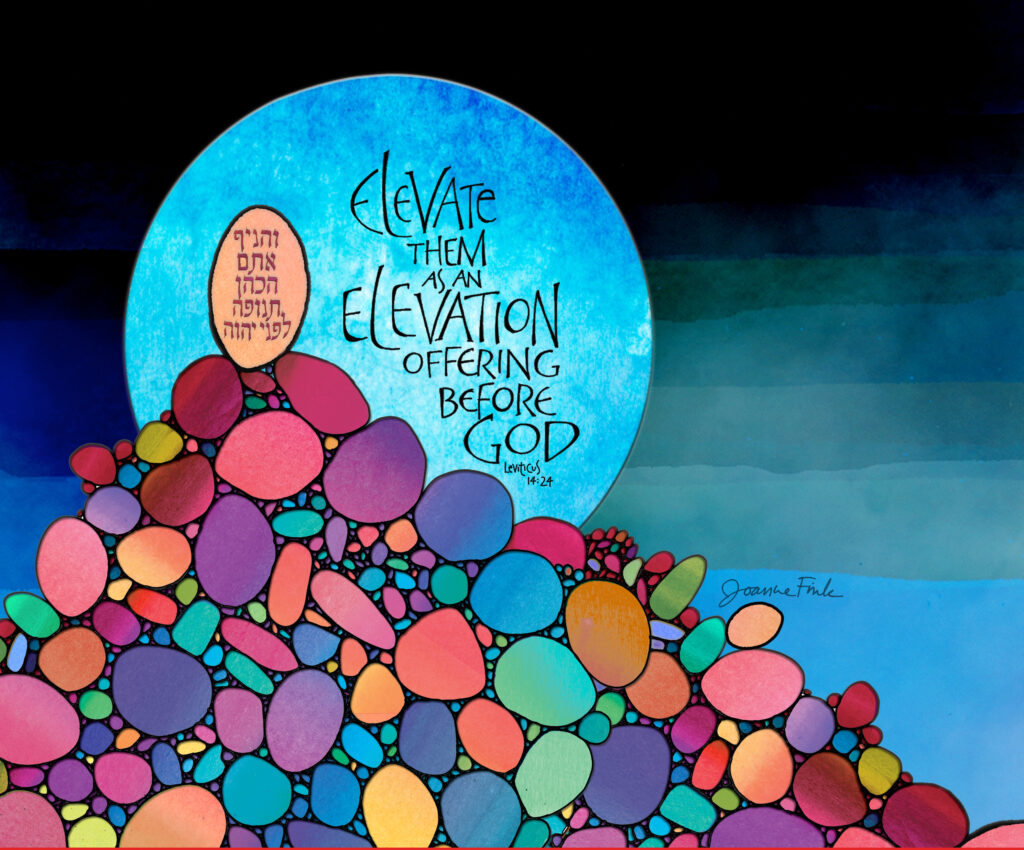
A Prayer for Parasha 28, Metzora
Holy Source of Blessing, Wellspring of Life,
Elevate my capacity to live with uncertainty
as I teeter on the precipice
of the unwelcome unknown.
Help me cope with the realization
that I am not in control of everything.
Grant me clarity to make wise decisions,
keeping the needs of those I love foremost in mind.
As I strive to stay grounded in gratitude,
bolster my ability to be present in the moment—
to respond from a place of love
rather than react from a place of fear.
Bless those I love, and those they love,
and all who are struggling this day.
Grant us patience, purpose, faith, and fortitude,
and inspire us to work together for the greater good.
Journaling Questions:
For Tazria (Leviticus 13:6 – Immersion & Stillness):
- Where in your life do you feel spiritually “outside the camp”?
- What are the inner “blemishes” or behaviors you are ready to examine without judgment?
- In what ways does busyness prevent you from becoming your best self?
- What would it feel like to strip away what no longer serves you?
For Metzora (Leviticus 14:24 – Threshold & Transformation):
- When have you found yourself on the precipice of change? How did you respond?
- What helps you stay grounded when you’re not in control?
- How can you shift from fear-based reactions to love-based responses?
- Who or what anchors you during times of uncertainty?
Closing Blessing:
May we learn to recognize holiness
in places of pain and healing,
in moments of stillness and return,
in the quiet presence of those who care.
May the sparks of light within us
illuminate the path ahead—
especially when the world feels dark
and the way forward uncertain.
May we respond to suffering
with compassion instead of fear,
with presence instead of retreat,
with hope instead of despair.
May our prayers rise like offerings,
our words bring comfort,
and our hands become vessels
for healing, resilience, and peace.
Kein y’hi ratzon—may it be so.
